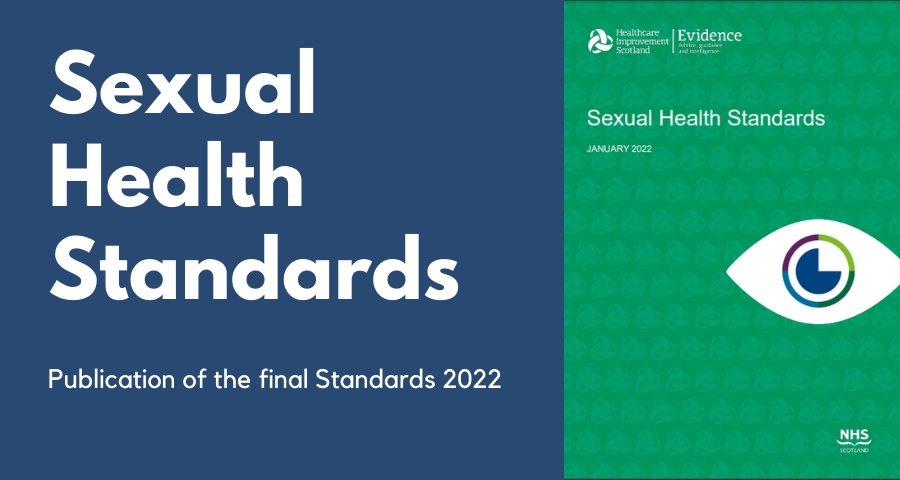02 February 2022

Following consultation with SDF and 43 other organisations, Healthcare Improvement Scotland (HIS) has announced the publication of the final sexual health standards to update and replace the previous standards published in 2008.
With the aim of improving access to sexual health care, and to reduce inequalities in sexual health outcomes, the sexual health standards can help services identify areas for improvement and outline the benchmark for what constitutes good sexual health care.
These sexual health standards aim to ensure that:
- harm is reduced through early intervention and improved access
- people are treated with compassion and respect, with their rights upheld, and
- people experience a service that is free from stigma
As well as outlining the importance of access to high-quality sexual health care in general, the standards have also been implemented to ensure that care is delivered to groups who are socially marginalised.
During HIS’s 15-week consultation period, SDF provided feedback from women with lived and living experience. Through discussions centred around access to safe, person-centred services, equitable experiences, and a holistic approach for those utilising sexual health care services, SDF was able to gather insight into what were considered to be important aspects of delivering or receiving effective, relevant standards.
SDF’s Sexual Health and Blood Borne Viruses Team Leader, Adrienne Hannah, said:
“SDF was able to contribute knowledge and experience from a very particular population – women who use drugs and who have experience of accessing sexual health services.
“These standards will inform the delivery of sexual health services and lead to greater accessibility and reduced stigmatisation of a very vulnerable population. Women who use drugs should feel more welcome at sexual health services and have much easier access to contraception, abortion, STI and BBV checks, and other services.”
The standards cover the following areas:
- Leadership and governance
- Shared and supported decision making
- Education and training
- Access to sexual health care
- Sexual well-being
- Prevention, detection and management of sexually transmitted infections and sexually transmitted bloodborne viruses
- Services for young people
- Reducing sexual health inequalities
- Reducing unintended pregnancy
- Abortion care
